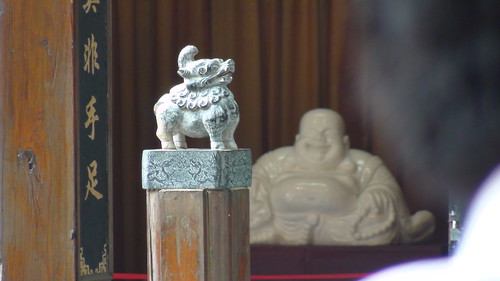doing absolutely nothing except respiring
"But I stood in the middle of my room doing absolutely nothing except respiring, and, of course, keeping other normal processes going. Maintaining my physical side while my mind was focussed on the radio."
from "Confessions of a crap artist" by Philip K Dick. he's lived in hotels at times then? ;)
I started reading this book tonight. thank goodness for the "PhilipKDick-45books" file - it's saved boredom in hotels on work trips many a time.. usually in each of his books, there's a sentence or phrase that sticks in my mind after I've read it. it's amazing how such few words can change your life - a moment, a few words and suddenly everything is different (sometimes better, sometimes worse - though most change seems to be for the better after a period of time and with some hindsight)

from the introduction to the book (introduction written by Paul Williams)
[quote]The reality of Philip Dick's characters stems quite simply from the fact that they are real to him; he hears them talking, in his mind, and records their conversations and thoughts--his dialogue, in almost all of his novels, is excellent. He is especially good at capturing the interactions between people; the authenticity of his work lies not so much in what people say as in how they respond to each other. In a conversation in 1974, Dick told me, "Well, the idea of a single protagonist, I never could understand that too well. . . .What I've felt is that problems are multipersonal, they involve us all, there's no such thing as a private problem. . . . . It's only a form of ignorance, when I wake up in the morning, and I fall over the chair and break my nose, and I'm broke, and my wife's left me -- It's my ignorance that makes me think I'm an entire universe and that these miseries are my own and they're not affecting the rest of the world. If I could only look down from a satellite, I would see all the world, everybody getting up and, in some analogous way, falling over a chair and breaking something."
The humor in the novel, in everything Dick says and writes, is self-evident ("I stood in the middle of my room doing absolutely nothing except respiring, and, of course, keeping other normal processes going"). Dick writes from the center of some vast despair that is, however, never final; the reverse of cynicism is at work here. No matter how miserable and absurd his characters' actions and thoughts are, Dick's attitude toward his characters is always, finally, sympathetic -- he loves and understands them, his books affirm a faith and affection for humanity, in spite of all our idiocies. The result is somehow comic. In _Confessions_ particularly, every little hilarious detail of the awful vanity of our minds is mercilessly exposed. It is possible a woman could drive a man to such a state that he would assassinate his own pet sheep? You better believe it.
But the humor in no way dilutes the horror. The horror in all of Dick's novels is that the world around us is cruel and insane, and the more courageously we struggle to remove the blinders from our eyes and see things as they really are, the more we suffer. Awareness is pain; and Dick's characters are cursed with awareness, like the autistic child in _Martian Time-Slip_ who hears the noise of the universe decaying. In _Confessions of a Crap-Artist_, the horror is that human beings torture each other, and fail repeatedly to do what is best both for the people around them and for themselves. We are dimly -- sometimes even acutely -- aware of the interconnectedness of our lives, but we don't seem to be able to put that awareness to work for us, in fact our efforts to do so only make things worse. The novel is summed up in Jack Isidore's poignant observation: "In fact, the whole world is full of nuts. It's enough to get you down."[/quote]
| Attachment | Size |
|---|---|
| 287.97 KB | |
| 432.14 KB |
::: category:
::: location:
- AliaK's blog
- Log in to post comments
- 2329 reads
